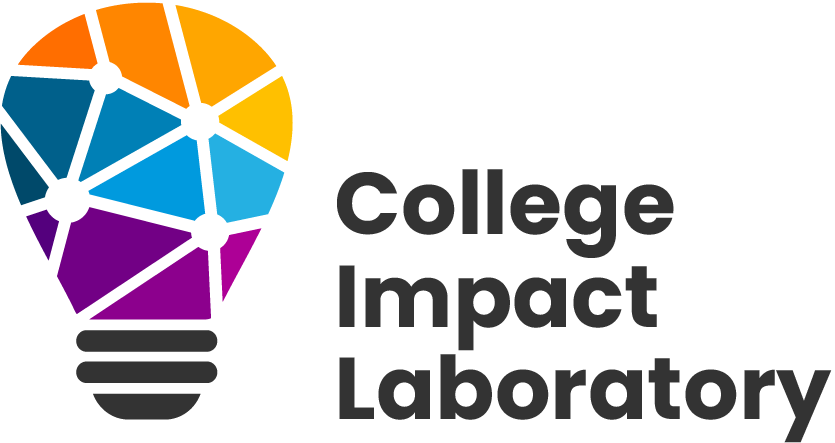
EDiCTS 2.0
Drive to Thrive
The EDiCTS 2.0: Drive to Thrive program will broaden the initial project by expanding to include the 36 additional ASSET programs for a total of 40 community college ASSET programs. This project aims to spark transformative change by collaborating with researchers at OSU, the Ford Motor Company, 40 community colleges, Ford and Lincoln dealerships to understand the nuances of students in automotive technology programs, specifically those from marginalized and minoritized backgrounds. The EDiCTS 2.0 project will change the systematic, curricular, and pedagogical ways automotive technology (AT) and workforce education are conceived and delivered by integrating key student success strategies with wellness initiatives, with an emphasis on financial literacy and healthy life choice behaviors. Specific to AT education for a diverse and skilled workforce, this integration process will lead to a transformational change, altering the ways community colleges deliver their degree requirements, employers value automotive technical education, and students develop the skills needed to successfully enter the workforce.
Ford ASSET
The Ford ASSET programs are cooperative two-year associate degree programs that allow students to earn a college degree, gain about a year of work experience, and earn 19 Ford certifications. Students are required to work at a sponsoring Ford or Lincoln dealership during their degree program, which allows students to engage in the theory-to-practice element. This experience-referred to as their co-op or internship-is a critical element that allows the students to apply what they learn in the classroom in the real-world setting, become familiar with the dealership/workplace environment, and earn money while they pursue their degree.
EDiCTS 2.0 Activities
ASSET students will engage in various Drive to Thrive activities designed to enhance wellness, specifically financial literacy, intellectual, occupational, social-emotional, and physical/prosocial behaviors as well as student goal orientation, social and academic integration, interaction with faculty, and resilience to external pressures that promote attrition.
Surveys. ASSET students will complete a pre-activity survey, a post-activity survey, and then a final survey at the end of the semester.
Wellness modules emerged from the EDiCTS project and center around the need for AT students to improve their financial literacy skills and healthy, prosocial behaviors. Financial literacy skills are crucial for college students as they navigate the transition into adulthood and manage their finances independently (see Lusardi, 2019). Understanding concepts such as budgeting, debt management, investing, and saving is essential for their long-term financial well-being (see Wolla, 2017). For healthy behaviors, the initial EDiCTS participants described their struggles with healthy behaviors and choices – such as clean driving records and responsible substance use. Specifically for ASSET students, they will lose their internship and be removed from the ASSET program if they incur points on their license. Nationally, mental health and substance abuse are issues for all college students – including community college students (see Sontag-Padilla et al., 2023). Developing an understanding of healthy behaviors and coping strategies are critical for community college student success.
Goal-setting will ask students to define a set of academic, work, and social goals and encourage a subsequent meeting with their advisor/counselor every semester where they will receive information on how to navigate their future career and utilize available opportunities and support to reach these goals. This activity is a form of intellectual and occupational health. It is predicted to enhance student goal commitment (Halpin, 1990) and to allow students to benefit from more intensive academic advisement (Hatch & Garcia, 2017). Results from this activity will be used to inform the wellness modules.
Learning self-assessment requires students to perform an annual written self-assessment of their weaknesses and strengths in relation to their future career as an automotive technician. Students will then meet with a faculty/instructor or an internship mentor to discuss how the ASSET program can be improved to better support their success. This element is related to intellectual, occupational, and social-emotional health and has been documented to enhance success (Mertes, 2015). Results from this activity will be used to inform the wellness modules.
Evaluative cohort-gathering and focus group supports the social integration of students and aims to increase social- emotional health by attending a one-hour cohort after they complete the wellness modules. This gathering will allow students to develop peer support networks and identify interpersonal resources and coping strategies that will promote persistence. Such peer interaction has been demonstrated to enhance learning and increase GPA in college populations (Lundberg, 2014), thus indirectly promoting retention.
Activities scholarships for community college students are provided to encourage participation and reward the time taken to complete the activities. We know that community college students often lack the financial resources needed to persist toward degree completion compared to those attending 4-year institutions (see Mayhew et al., 2016). However, community college students who receive small grants are more likely to persist (see Nguyen et al., 2019) than those who solely rely on taking out loans and working full-time (see Sommers, 2003).
Presentations and Papers
Print Pieces
Mayhew, M., Creamer, E., & Townsend, S. (n.d.). EDiCTS 2.0: Drive to Thrive [one-page information sheet]. The College Impact Lab.
Ciccone, J. K. (2024, September 13). Grant to support diverse students entering auto industry. The Ohio State University. https://ehe.osu.edu/news/listing/grant-support-diverse-students-entering-auto-industry
Presentations
Creamer, E., & Mayhew, M. (2025, February). Drive to Thrive: Wellness for Enhancing Student Success. Educational session presented at the 2025 ACPA Convention (College Student Educators International), Long Beach, CA, United States.





